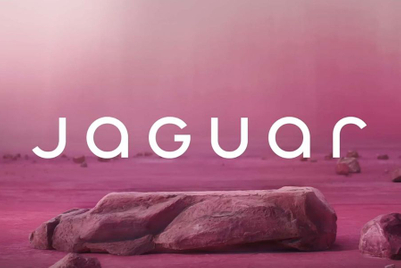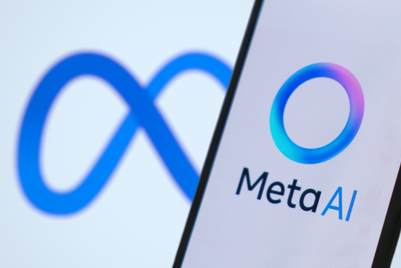.jpg&h=570&w=855&q=100&v=20250320&c=1)
Make no mistake: In the annals of brand miscalculations, Jaguar's recent rebranding effort is a particularly egregious case of self-sabotage. This isn’t just a marketing misstep—it’s a self-inflicted gunshot wound.
Launched last week, the campaign threatens to undermine decades of brand equity, and risking the alienation of the very people who have upheld the Jaguar name for decades. The backlash isn’t just anecdotal; it’s quantifiable. According to media intelligence firm CARMA, Jaguar’s sentiment has plummeted from 23.1% positive and 21% negative to a staggering 8% positive and 40.3% negative, following the launch of its reimagined branding. These numbers don’t just indicate dissatisfaction—they signal a collapse in consumer goodwill.
Seriously, what are the folks in Coventry smoking?
Rebranding isn’t rocket science; it’s a delicate but well-trodden process. Every responsible brand evolves with the times. For Jaguar, we all knew its cars needed to evolve and reclaim their place as a symbol of “electric British luxury,” sort of the Bentley of the EV world. At least, that’s what the market assumed as we petrol/EV heads eagerly watched YouTube opinions and read insider accounts from Car & Driver about the new Jag’s name. But now we’re left scratching our heads, wondering, what on Earth is Jaguar even trying to be?
Alienating loyalty: A cardinal sin in branding
The fundamental error isn’t in Jaguar’s desire to evolve; it’s in its shocking willingness to alienate its core audiences to chase seemingly androgynous, undefined new ones. Loyalty is hard-earned and easily lost. Jaguar’s legacy—elegance, performance, and Britishness—has been unceremoniously tossed aside for a colourised glimpse of a rock. A ROCK! The campaign’s disconnect from both automotive desires and brand heritage is not just disappointing, it’s a callous misreading of today’s cultural and market realities.
In my mind, it’s akin to Porsche launching the Taycan by suggesting their 911 customers were boring, or yesterday’s news. Yet, Jaguar’s leadership seems to think alienating its current customer base is a badge of honor. And yes, the parallels with Bud Light’s debacle are impossible to ignore. Such actions should send shivers down any shareholder’s spine.
A cultural misstep
By releasing this campaign, Jaguar seems to have misjudged the cultural moment, overlooking how quickly negative reactions can gain traction through podcasts or viral content. While evolution is vital for any brand, it doesn’t need to come at the expense of its identity. Jaguar’s pivot risks alienating its core audience and strays from the brand's established legacy of “Grace, space, pace.” In contrast, competitors like Porsche have successfully embraced modernity without compromising their heritage. Chris Harris’ podcast summed up the campaign’s reception as “Waste, haste, and no taste,” a sentiment that underscores the importance of thoughtful brand evolution.
Leadership accountability: Where is Tata?
For Asian conglomerates that acquire marquee Western brands, Jaguar’s misstep is a cautionary tale. How much autonomy is too much? Given Tata’s ownership, one has to wonder: Where was Tata Motors in all of this?
Tata has a storied reputation for loyalty and sound brand stewardship. Under its leadership, Land Rover has thrived, balancing heritage with innovation. The contrast between Land Rover’s success and Jaguar’s crisis couldn’t be starker. This debacle feels like a leadership failure specific to Jaguar.
Also compare this with Geely’s handling of Volvo and Polestar—a masterclass in granting autonomy while maintaining strategic oversight. Tata now faces a critical decision: Intervene and course-correct or risk letting Jaguar drift further into irrelevance.
The path forward
Jaguar’s trajectory is a cautionary tale for brands everywhere. Reinvention must build on strengths, not erase them. The brand still has time to recover—by returning to its roots and delivering an EV future infused with authenticity and heritage. But for some, the damage may already be done.
Speaking as a digital marketer, this level of negative publicity is particularly challenging to overcome. The virality of online backlash amplifies missteps exponentially, making recovery both complex and prolonged. Data-driven testing and resonance with key stakeholders aren’t optional—they’re prerequisites. Social listening could have revealed the misalignment before launch. Jaguar appears to have skipped these simple steps entirely, and now its misstep lives forever in the digital ether. Metrics don’t lie, but brands often do—to themselves.
Jaguar was never meant to be a copy of anything. But in discarding its past, it risks becoming a carbon copy of every other luxury EV brand vying for attention. The road back starts with remembering who it is—and what made it great.
For marketers watching this unfold, the lesson is clear: Alienating your loyal audience in search of new ones isn’t brave—it’s bad business. Heritage isn’t a weakness. It’s a strength. Jaguar’s is unparalleled. It’s time to embrace it.
Ramakrishnan Raja is the principal at marketing transformation consultancy, Resonant.




.jpg&h=334&w=500&q=100&v=20250320&c=1)





+(900+x+600+px)+(3).png&h=334&w=500&q=100&v=20250320&c=1)
.jpg&h=334&w=500&q=100&v=20250320&c=1)


.jpg&h=268&w=401&q=100&v=20250320&c=1)
.jpg&h=268&w=401&q=100&v=20250320&c=1)

.png&h=268&w=401&q=100&v=20250320&c=1)
.jpg&h=268&w=401&q=100&v=20250320&c=1)
.png&h=268&w=401&q=100&v=20250320&c=1)
